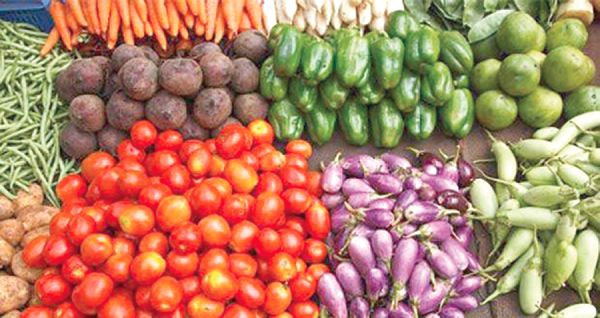
No association, no exports, Plant Department warns vegetable & fruit exporters
From January 2019, all vegetable and fruit exporters will be required to belong to an association before being allowed to export their produce from the country, the Plant Protection and Regulatory Services Department (PPRSD) has indicated.
This is to keep all the exporters in check to ensure that they are doing the right thing and also ensure that the country is not banned again from exporting to Europe.
Advertisement
This was disclosed by the Deputy Director at the PPRSD, Mr Prudence Attipoe, at the HortiFresh Business Platform Meeting which was held on November 30 in Accra.
The EU, in October 2014, banned the export of gourds and Asian vegetables such as chillies, aubergine and other vegetables from Ghana to its markets based on suspicions that the farm produce were infested with pests.
The ban resulted in the country losing more than US$30million in export revenue from five selected vegetables banned from entering the EU market.
To help overturn the fortune, the government outlined measures through horticultural value chain to help overturn the ban.
Subsequently, this ban was overturned in January 2018 after the EU was satisfied with the corrective measures that were taken by the country.
Mr Attipoe said this measure was, therefore, to ensure that the country did not end up in such a situation again in future.
He said the directive would also help the PPRSD to effectively carry out its mandate as it might not have to be dealing with individuals but associations.
Legal action
Considering that the 1992 constitution of the Republic of Ghana guarantees freedom of association, some of the exporters, who were present at the meeting, threatened to take legal action, if the directive was carried out.
They believe there was no law that compels them to belong to an association before being able to export their vegetables and fruits and, therefore, asked the PPRSD to reconsider that directive.
Mr Attipoe, speaking in an interview with the media, however said such a legal action would be, ‘dead on arrival’, considering that the decision was agreed upon in consultation with all the exporters.
“We had a meeting and we all agreed on this directive. The minutes of the said meeting are binding on everyone so I am surprised they did not raise any objection at the meeting but doing so now,” he stated.
Business meeting
HortiFresh organised its first business platform meeting to discuss domestic standards and export requirements within the horticulture sector.
The meeting explored business opportunities in the domestic and export markets, looking at new crops, processing and alternative marketing arrangements.
A deputy Minister of Food and Agriculture, in charge of Horticulture, Mr George Oduro, said the government was committed to ensuring that food safety and phyto-sanitary standards were improved through the compliance with existing regulations and guidelines.
He said the rapidly changing demands of the middle income class and the increasingly strict conditions of the EU, necessitates a new way of doing business for fruit and vegetable growers.
“This includes conscious production practices, with respect to pest, disease, and post-harvest management that together can improve consumer confidence and increase revenues for farmers,” he stated.
HortiFresh programme
The Programmes Manager of HortiFresh, Mrs Sheila Assibey-Yeboah, for her part, outlined its core activities.
These included supporting innovative business ideas of small and medium enterprises, encouraging more youth participation in the horticulture sector, and developing strong horticulture clusters.





